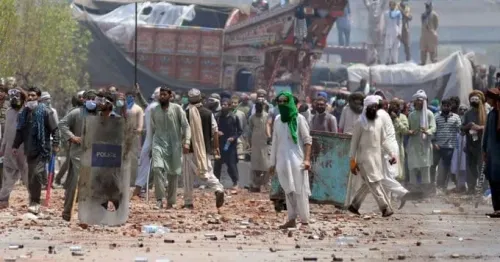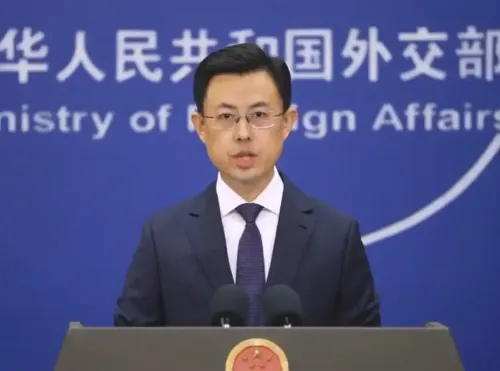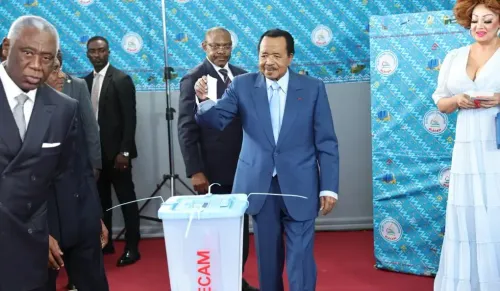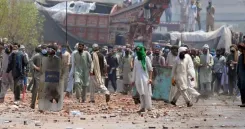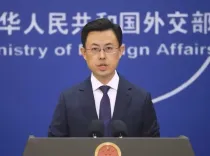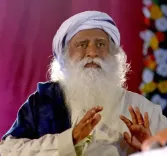Are journalists and rights activists worried about press freedom in Pakistan?
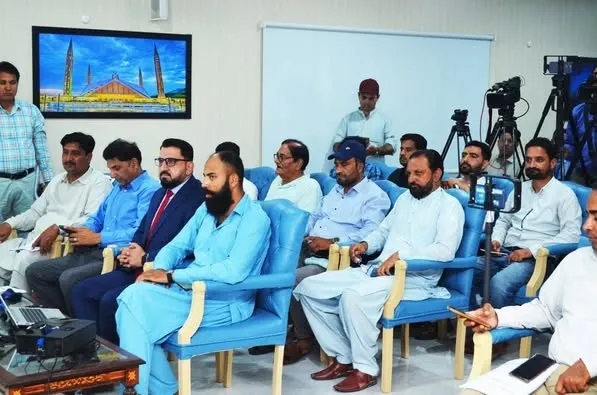
Synopsis
Key Takeaways
- Escalating Restrictions: Journalists face increasing limitations on their ability to report freely.
- Historical Parallels: Current conditions are reminiscent of past military censorship.
- Unity is Crucial: Solidarity among journalists is essential to combat government oppression.
- Focus on Women: Women journalists are particularly vulnerable to harassment and legal action.
- Call for Action: Activists urge collective action to safeguard press freedom.
Islamabad, Sep 5 (NationPress) Concerns are mounting among journalists and rights activists regarding the escalating restrictions on press freedom in Pakistan. Many are drawing parallels between the current climate and the media censorship witnessed during General Ziaul Haq's military regime, as reported by local media on Friday.
These issues were brought to light during events in Islamabad honoring Nisar Osmani and CR Shamsi, two esteemed journalists and trade unionists who championed press freedom and journalists' rights during periods of martial law, according to Pakistan's prominent daily, Dawn.
At a seminar hosted at the National Press Club on Thursday, both current and former leaders of the Pakistan Federal Union of Journalists (PFUJ) and the Rawalpindi-Islamabad Union of Journalists (RIUJ) paid homage to the two journalists, discussing their tireless efforts for a free press.
Another gathering took place outside the Dawn offices, where journalists, lawmakers, and rights activists participated in a candlelight vigil to honor Osmani and Shamsi. The speakers urged for solidarity among journalists to collectively oppose government-imposed restrictions on freedom of expression. They reaffirmed their commitment to fight against media limitations, including the recent amendments to the Prevention of Electronic Crimes Act (PECA).
Speakers emphasized that the current atmosphere of fear and intimidation is stifling independent journalism, with many reporters experiencing harassment, abduction, and violence while performing their duties. They underlined that a free press is essential for a thriving democracy. Concerns were also raised about the closure of access roads to the NPC, which was described as an attempt to 'besiege' journalists.
In August, the Human Rights Council (HRC) of Pakistan condemned the filing of cases under the PECA against four women journalists, labeling it an assault on freedom of expression. The rights organization stated that these actions against journalists Nayyar Ali, Sehrish Qureshi, Maira Imran, and Shakeela Jalil worsen the already challenging circumstances for women journalists in Pakistan.
“In a civilized society, the evaluation of institutions is determined by the involvement and role of women. Targeting women in journalism with lawsuits and harassment is profoundly regrettable,” stated HRC Pakistan.
The rights organization demanded that immediate justice and protection be granted to these women journalists. Additionally, it called upon all journalistic entities, civil society, and human rights organizations to unite and advocate for journalistic freedom and the rights of women in Pakistan.

